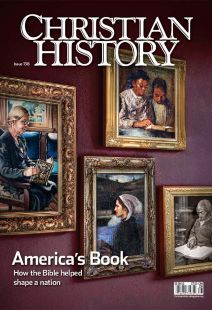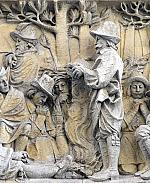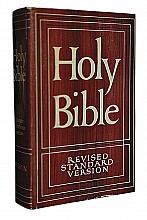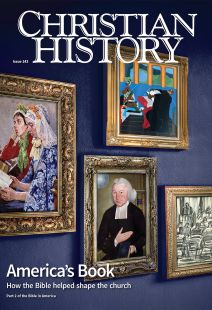America's book: managing editor's note

[Issue 138 Americ's book: how the Bible helped shape a nation, is companion to this issue]
This is the second issue in our two-part series on the Bible in America. The first one (#138), released in 2021, focused on the Bible in American civic life—the ways the Bible has shaped American politics, literature, moral reform, responses to national crises, and even media and the movies. At the time we said that our second issue would turn inward rather than outward, looking at “the Bible for the church” as the first one had studied “the Bible for the nation.” What I didn’t expect was how hard it would be to turn inward.
Quizzing, riots, and cyberspace
As a nation, it turns out, we’re very good at turning outward. We’re skilled at using the Bible to motivate social reform, to encourage better morals, to spur on political activism, and to inspire great literature. Search the internet for quotes and speeches about the Bible—as I did several times in the preparation of this issue (see pp. 1 and 14), and you’ll find many quotes about its importance to our national history and reflections about its place in our national life.
Dig a little deeper, and you’ll find reflections about our cherished national emphasis on individuals reading the Bible for themselves—an emphasis we talked about at length in issue #138. But to find the story of how the Bible formed the church, you have to look deeper still.
And so we have. In this issue you’ll read not only about how the Great Awakenings transformed American society, but about how evangelists used the Bible to seek converts. You’ll learn not only about Sunday schools bringing literacy and moral reform, but about how students studied and memorized the Word and joined in Bible Quizzing. You’ll take a fresh look at hymns and songs based on Scripture texts, at theological debates (and even riots) over biblical interpretation, at new and old Bible translations, and even at Bible study in cyberspace.
Of course history is always complex. People who used the Bible to motivate social and moral reform in “the world” were usually at the same time experiencing the Bible in church—read, preached on, memorized, sung, and debated. They had political and social opinions, but they also had theological ones. Both kinds of opinions influenced each other.
We hope this issue will serve as a companion to 138 in fruitful ways. As you read issue #143, ask yourself, “What was going on in the nation as these events happened in the church?” As you read issue #138, ask yourself, “What was going on in the church as these events happened in the nation?” Together, we hope the two issues bring you better clarity regarding the ways Americans have valued, experienced, and defended the B-I-B-L-E.
CH
By Jennifer Woodruff Tait, Managing editor
[Christian History originally published this article in Christian History Issue #143 in 2022]
Next articles
Meet the intern: Kellie Mitchell
Kellie Mitchell and the editorsWhose Bible?
As American Christians have prayed, worshiped with, and studied the Bible, they have often wrestled over how to interpret it
Jason A. HentschelSome English Bible translations and paraphrases
A version for every taste and reading level
the editorsSupport us
Christian History Institute (CHI) is a non-profit Pennsylvania corporation founded in 1982. Your donations support the continuation of this ministry
Donate







